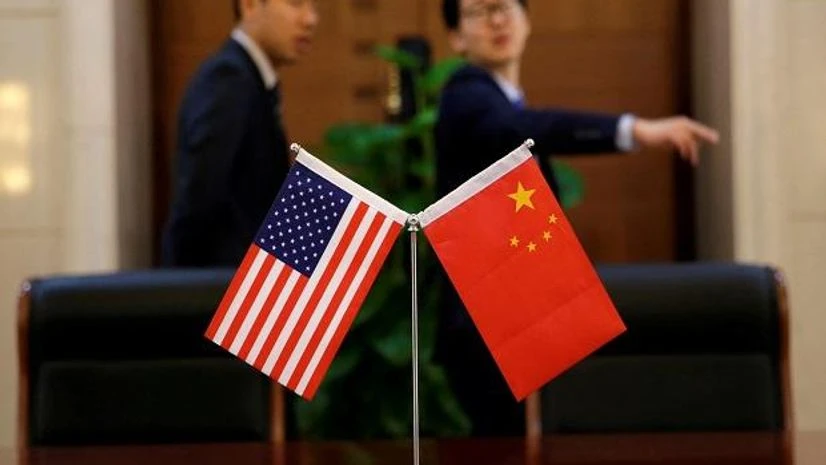Washington imposed tariffs on $34 billion of Chinese imports on Friday and Beijing has said it will retaliate with punitive measures on US products worth a similar amount, including soybeans, pork and cotton.
The Chinese government had not officially confirmed on Friday afternoon that the retaliatory tariffs had taken effect.
But the tit-for-tat measures have escalated the trade dispute between the world's two largest economies and the world's commodities markets are increasingly embroiled in the bust-up.
The higher US tariffs went into effect just after noon in Beijing (0401 GMT).
The US and China have also issued a second batch of proposed duties on $16 billion of each other's goods. These would hit US energy exports, such as coal and crude oil, among other areas. It is unclear when these will come into effect.
Below is a detailed breakdown of the markets affected by the tariffs imposed and proposed:
More From This Section
Food:
* Beijing's tariffs will have the biggest impact on soybeans, the United States' top agricultural export to China in 2017 worth about $12.7 billion, hurting US farmers in states, such as Iowa and Texas, which backed Republican President Donald Trump in the 2016 election.
Buying interest in US beans from China, the world's top importer of the oilseed, has slowed to a trickle ahead of the tariffs, with one remaining US cargo heading for China still on the water.
The vessel, Peak Pegasus, carrying 70,000 tonnes of the US oilseed for state grain trader Sinograin, was due to arrive in the port of Dalian at 5:00 p.m. (0900 GMT) on Friday, just hours after the duties went into effect.
Some shipments marked for China were due to be loaded from the US Pacific Northwest, and are likely to get sent elsewhere as exporters scramble to avoid paying the tariff, a US trader said.
In the months ahead though, China will struggle to replace the US beans, forcing processors, which crush the beans to make oil and animal feed, to pay the extra duty or find substitutes.
Rabobank reckons China may have to buy up to 15 million tonnes of US beans at tariff prices. Crushers may not pass on the inflated cost at least in the short term, further eroding their already low margins, the bank said in a research note.
The biggest impact will likely be seen in sales of the next US crop, which will come to market in September.
In the meantime, Brazil, the world's top exporter, will likely pick up the slack, although a trade association warned on Thursday the South American country may need to import the oilseed from the United States this year to satisfy demand from local processors.
* US pork was already saddled with duties enacted in an earlier round of the trade row and now faces an extra 25 per cent tariff that would raise the total charges up to 62 per cent.
European pork will gain some ground over the US , which shipped almost $500 million worth of pork to China last year. US shipments have nearly ground to a halt since the 25 per cent tariffs implemented on April 2.
Energy:
* A record volume of US crude oil is heading to China even as Beijing's planned tariffs threaten to cut off a relatively new and burgeoning business for US exporters.
Nine vessels with 26.6 million barrels of crude oil loaded in Texas and Alaska and worth about $2 billion are due to land over the next five weeks, Thomson Reuters trade flow data shows.
That equates to 700,000 barrels per day, 8 per cent of China's daily imports and a large volume for the United States, a newcomer to the Chinese market.
If enacted, the import duty would make US oil less competitive than other crudes, likely causing a decline in Chinese purchases and forcing US oil firms to find other buyers.
Amid a relatively well-supplied global oil market, energy consultancy Wood Mackenzie said the United States "would find it hard to find an alternative market that is as big as China," as Chinese buyers make up 20 per cent of US overseas crude sales.
China would likely replace the lost US barrels from their top sellers Russia or Saudi Arabia, which have recently announced plans to raise output.
Among other energy products, China noticeably spared US liquefied natural gas (LNG) exports from potential import tariffs, but in doing so, it has preserved a potential weapon should the trade war with Washington deepen.
However, coal could be caught in the crossfire if the second batch of duties is introduced.
Replacing American shipments with coal from other places would not be difficult for China, but a loss of business with the world's top importer of the fuel would hurt companies in West Virginia, a state that heavily favoured Trump in the 2016 presidential election.

)
